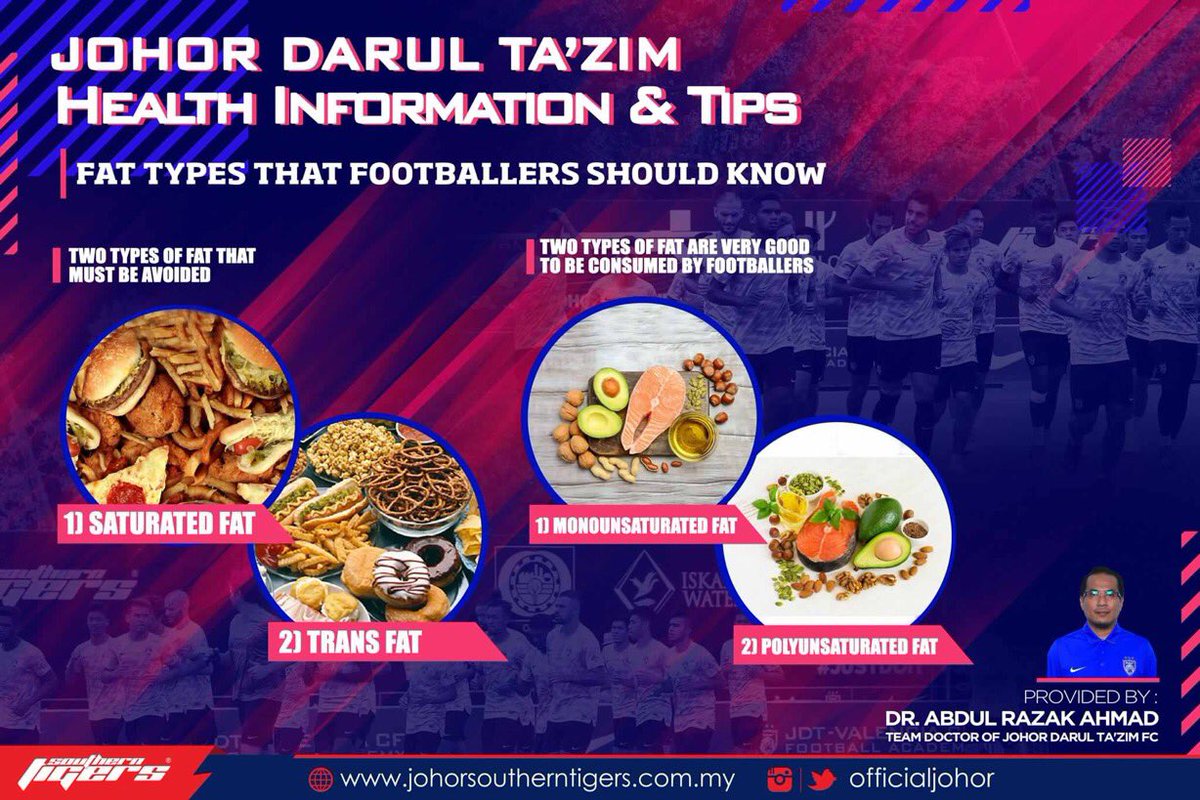As a footballer, the body fat percentage must be maintained at between 12% and 15% of the total body weight. The fat intake should be limited to not more than 20% of the daily calorie consumption. [1/9]
Any fat intake made before a match could cause indigestion and a player could suffer from stomach discomfort.
There are four types of fat that footballers should know. Some of them are good for footballers, while some must be avoided.
[2/9]
Two types of fat that must be AVOIDED are;
1) Saturated Fat
[3/9]
Saturated fat must be avoided by footballers. It can cause high levels of LDL cholesterol and increase heart attack risk. It becomes solid at room temperature. Examples of saturated fat are animal products, sausages, cheese and burgers.
[4/9]
2) Trans Fat
This type of fat must be completely avoided by footballers. It can cause coronary diseases, insulin sensitivity and type II diabetes. Trans fat is found in processed and fried food.
[5/9]
It is also stated in nutrition labels and must be avoided. Examples of trans fat are potato chips, biscuits, cookies and donuts.
Meanwhile these two types of fat are very good to be consumed by footballers;
[6/9]
1) Monounsaturated Fat
Monounsaturated fat is a type of unsaturated fat. It can improve cholesterol levels and control insulin sensitivity and sugar levels. Examples of monounsaturated fat are olive oil, peanut oil and avocados.
[7/9]
2) Polyunsaturated Fat
Polyunsaturated fat is a type of unsaturated fat and can be taken by footballers. It is divided to Omega-3 and Omega-6 that help joint and muscle movements.
[8/9]
Examples of Omega-3 are tuna fish oil, salmons and mackerels. While examples of Omega-6 are corn oil and soybean oil.
This health information is provided by Dr. Abdul Razak Ahmad, team doctor of Johor Darul Ta'zim FC (JDT). Luaskan Kuasamu Johor.
[9/9]

Ulasan
Catat Ulasan